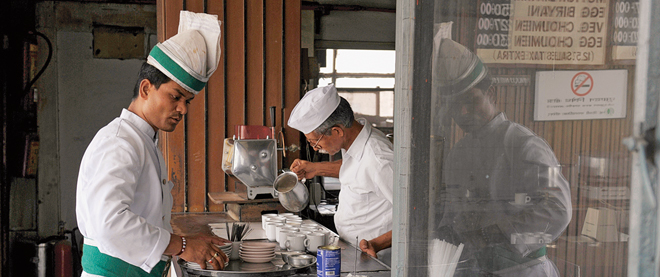Starbucks takes on India
The coffee giant has teamed up with Tata Group to introduce lattes to Indian taste buds
Share

Starbucks is the latest global chain hoping to cash in on India’s booming coffee house culture
India has long been associated with tea, from the vast tea fields of Darjeeling to the chai wallahs hawking their brew in pots at train stations and street corners for a few rupees a cup. But these days the country is becoming better known as the epicentre of the global coffee wars. Starbucks announced plans earlier this year to bring its skinny caramel macchiatos and double chocolate chip frappuccinos to India. The Seattle-based purveyor of gourmet Italian coffee for the masses said it expects to open 50 cafés in the country by year’s end, starting with Mumbai and New Delhi.
In an unusual move for the coffee giant, Starbucks announced a joint partnership with Tata Group, the Indian conglomerate that owns major tea brands Tetley and Typhoo. The stores will be called Starbucks Coffee: A Tata Alliance, and will include a line of teas exclusively for the Indian market branded as Tata Tazo. Tata has said the partnership also includes plans for Starbucks to source Indian-grown coffee for its global beverage empire. That’s expected to be a boost to the country’s farmers, who are the world’s largest tea exporters after China but represent less than five per cent of global coffee growers.
But even as it gears up to unlock the caffeine cravings of India’s burgeoning middle class, Starbucks may find itself entering an increasingly crowded market. Coffee consumption in the country has doubled since 1999, says the Coffee Board of India. The country is already home to Café Coffee Day, which has 1,200 shops across India and says it plans to open another 1,000 over the next two years. Other domestic chains include Barista, while imports such as Italy’s Lavazza, the U.K.’s Costa Coffee, Australia’s Gloria Jean’s and the Coffee Bean & Tea Leaf from California already cater to an upscale market.
Starbucks may find a loyal clientele regardless. Not unlike many North Americans, Indian consumers, notes market research firm Technopak, are drawn to cafés more by the prospect of a clean, air-conditioned meeting place than by the thought of paying 200 rupees for a venti no-whip mocha.